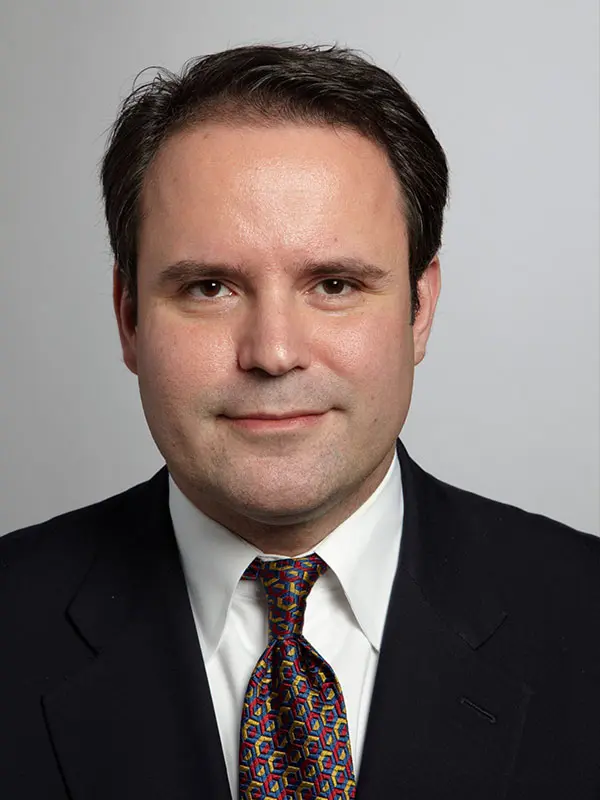Orthopedic surgeons within the Mount Sinai Health System are working on several innovative projects that aim to provide personalized care to patients in need of new joints.
“We’ve been personalizing some of our patient practices in the hope of improving outcomes and preventing complications,” says Calin S. Moucha, MD, Chief of Adult Reconstruction and Joint Replacement Surgery for the Mount Sinai Health System and Professor in the Leni & Peter W. May Department of Orthopedic Surgery at the Icahn School of Medicine at Mount Sinai.
Using Pre-Surgical Prophylaxis to Reduce Infection
At Mount Sinai, every joint replacement patient undergoes microbial testing preoperatively and receives antibiotic prophylaxis targeting the specific bacteria on their skin. This is particularly important for the 5 percent to 20 percent of the population who are colonized with methicillin-resistant Staphylococcus aureus (MRSA), since they are at high risk for perioperative staph infections.
Patients are instructed in de-colonization with a variety of cleansing protocols five days prior to surgery. Those colonized with MRSA also receive vancomycin in addition to cephalosporin at the time of surgery.
Not all hospitals do this, notes Dr. Moucha, who introduced the process to Mount Sinai about a decade ago. “It does take a lot of work. Testing prior to surgery, following up on the results, and acting on them appropriately take time and resources.”
But, he says, “We have an exceedingly low infection rate. This is due in part to a robust educational program we have for our surgeons, anesthesiologists, and staff. This initial effort at individualizing care “really sort of set the platform in my mind for how we could further tailor other things for patients.”
Personalized Pain Management to Reduce Post-Surgery Opioid Use
Under the leadership of Carol R. Horowitz, MD, MPH, Professor of Population Health Science and Policy, Icahn Mount Sinai is participating in a randomized three-trial pharmacogenetic study investigating the use of a genotype-guided approach to treatment of depression, acute pain, and chronic pain. Dr. Moucha’s team is participating in the acute pain trial with patients who have undergone joint replacement, comparing six-month outcomes from those who receive pharmacogenomic testing and genotype-guided post-surgical opioid therapy versus those given standard pain care. Investigators are assessing whether the personalized approach reduces pain scores and opioid use.
“We are preoperatively testing patients to see how their body metabolizes different pain medications, and adjusting the medications based on that,” says Dr. Moucha. “If we can figure out the best pain medicine for a given patient, they will hopefully use less medication overall and the side effects will be lower.”
The study—which is expected to complete in late 2022 or early 2023—also includes spine surgery patients at Mount Sinai, under the leadership of spine surgeon Wesley H. Bronson, MD, Associate Professor of Orthopedic Surgery at Mount Sinai.
Mass Customization of Joint Implants
Customized joint implants are typically reserved for patients with very complex, unusual cases. But now, with advances in artificial intelligence and additive layer manufacturing, the aim is to bring the technology to all—rather than relying on standardized commercial products.
“We are soon at the point where we’ll basically be able to get a CAT scan or MRI of a patient’s knee and very expeditiously 3D-print a custom implant that really fits their bone,” Dr. Moucha says.
Douglas B. Unis, MD, Associate Professor of Orthopedics at Icahn Mount Sinai and Chief of Advanced Technology for Hip and Knee Replacement at Mount Sinai West, is investigating both the functional and cost effectiveness of customized devices. Can costs be brought down via reduced operative time, infection risk, need for instrumentation, and improved efficiency?
“Traditionally, customized implants are exceedingly expensive. The impetus for this is to significantly lower the price and have more control over it,” Dr. Moucha says.
Providing for All Patients—Regardless of Comorbidities
Many specialty orthopedic facilities forgo performing major surgical procedures on patients with significant medical comorbidities such as severe heart, liver, or lung disease. In contrast, Mount Sinai’s multispecialty approach means that such patients are equally offered state-of-the-art joint replacement.
“We treat all patients, regardless of medical problems. Because of our world-class medical team, we regularly see patients who have been turned away from community hospitals or orthopedic specialty hospitals. Because of the outstanding collaboration among our anesthesia and medical teams, we are able to perform these surgeries,” Dr. Moucha says.
Of concern, reimbursement for these complicated cases is often insufficient. “Sicker patients cost more to take care of, but hospitals should not get penalized for that. In fact, you should be protected,” says Dr. Moucha.
Aiming to push payment reform to this end, Dr. Moucha and other Mount Sinai investigators published a study in The Journal of Arthroplasty. They found that while the majority of hospitals treated healthier patients, the “redistribution” of more comorbid patients to multidisciplinary specialized facilities such as Mount Sinai resulted in more efficient and less costly care for those patients compared to that of the other centers.
“Hopefully, over time, insurance companies will adequately cover the care of these patients. At Mount Sinai, we make that commitment,” Dr. Moucha says.
Featured

Calin S. Moucha
Chief of Joint Replacement Surgery, Mount Sinai Health System, Professor of Orthopedics